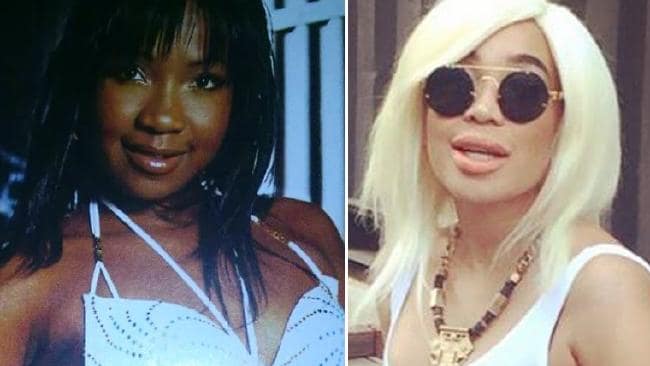It is a habit when people routinely captivate themselves with social networking platforms, like Facebook, the photos to which they’re revealed motivate an intellectual acquisition of impractical beauty paragons, and this can usher to defective body identity and low self-esteem, says John Mingoia, PhD student with UniSA’s School of Psychology, Social Work and Social Policy.
We live in a digital era of Social media, and that has altered the dissipation of celebrity from multitude-arbitrated media to an intimate encounter. Well known figures, socialites select how they show themselves and their concept of admirable body goals tend to be hypnotizing to their “fanatics” and “followers” on social media. The agitating portion is the comments that highlight their bodies and material possessions. In South Africa, adhering to international fashion, the well-known figures have captured the social media world and they discourse their beauty doctrines, infiltrating the younger generation.
The responsibility of the media in generating a particular conception of appeal in the midst of young women is maybe an indication of “societal, and particularly patriarchal”, philosophy of women and their body image. It has been debated by Wolf (1991), that it was anciently thought that women who are appraised as beautiful tend to be in favour connecting to their occupation, matrimony and social potency in comparison to those who are deemed less attractive.
We cannot deny the elevated notion of skin bleaching, Skin pigmentation sets the tone of beauty in the midst of numerous black women in our country (South Africa). Meaning, the lighter the shade of skin, you are then perceived to be superior and enchanting. The doctrine of Fair skin and the humiliation of dark skin cater back to the ancient times of colonial prejudice, unfortunately, that notion still echo’s and moulds the panorama of dark-skinned individuals of African lineage (Porano 2006). We are faced with the predicament presently of numerous women of African lineage elevating their skin appearance by whitening with a mindset of attaining fairer skin complexion. The mentioned above prospects of beauty formulates cultural identity.
There is an increase of influence the media has on how women perceive themselves, it apprehends the women’s pure self-assurance and provokes the compulsion of what is evaluated as ideal and unblemished celebrity standard of beauty. Our youth is continuously flooded with pictures of socialites on social media platforms, ranging from Instagram, Twitter, LinkedIn, Facebook and Pinterest. Well, they are continually seen as gorgeous and perfect, through ridiculous diet plans to shed off weight, that can lead to anorexia and obesity due to failed attempts, skin whitening, going under the knife (surgery). Moreover, the authority that certain socialites gain through a huge following on social media fortifies the pressure for their acknowledgement in marketing and media platforms.
In South Africa, various black women have adopted the worldwide movement of rocking synthetic/natural human hair Oyedemi 2016), apparently which is interlaced with being superior, beautiful and a Western doctrine of appealing and acceptable hair in comparison to nappy hair. I mean rocking weaves referenced as Peruvian, Brazilian and Indian are the ultimate signature amongst Slay Queens in South Africa. Various females well-known figures in South Africa elevate natural Brazilian and Peruvian weaves as the “prominent” appeal for a “gorgeous” black African woman. Well, the well-known, the elite that elevates this propaganda are usually, Bonang Matheba and Khanyi Mbau due to their committed agenda on weaves; in general, on a larger scale you hardly witness celebrities embracing their natural hair.
Another scrutiny adheres to the worldwide influence of the well-known culture, which has been infiltrated in the media through some of our famous reality shows (Keeping Up With The Kardashians) let us not forget the growth of self-broadcasting and youtube being one the largest platforms and there are other social media sites as well that carry out the notion. This attains celebs with a deep cultural authority to exhibit their riches, appeals, lifestyle and physical appearance, obviously with the idea of formulating an urge for materialism in the midst of their fanatics. The effect of this movement is that the media’s influence can rob young women of their natural confidence and instigate the obsession with “perfect” and “flawless” celebrity beauty that does not exist.
We need to stand up for our generation and combat this error, all the superficial beauty standards that have flooded our shores, imposed on us, leaving us with identity controversies, lacking confidence needs to be eradicated. We are more than our physical appearance, we are uniquely crafted and we cannot be objectified with peoples opinions of their own perspective of beauty.




